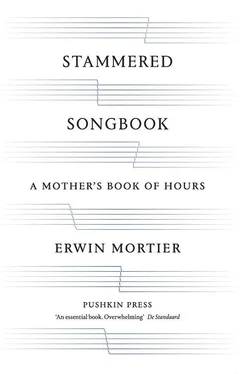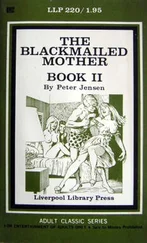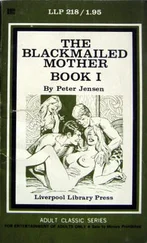Dad felt that we should honour the dead. He took us with him to the neighbour who had been ill for so long that we thought he was showing off, but who did finally breathe his last one Saturday afternoon. We still thought he was a show-off, laid out jauntily in his Sunday suit, with his yellow-blue fingers round a rosary. He who never set foot in the church acted posthumously as a model of piety, an apparently respectable and pious gentleman, who while he was alive preferred to spend much of the day shuffling round in a grubby dressing gown, in his underwear and stocking feet. He regularly beat his four daughters black and blue until they followed his dictates, but my father said that it takes all sorts to make a world, so we went to pay our respects to the body.
He took us with him to the old man, a little way down the street, who couldn’t get to the oxygen in time when he had an asthma attack. I recall — I remember — that he became a widower early, far too early, and that he always cried when Dad visited him. I had never seen an old man cry; I thought that tears dried up as you got older.
I saw Dad crying the day his mother died and all the family were called to the home and he arrived too late to say goodbye. The day after he took us to see her. In my memory he carries the three of us, my sisters and me, my brothers are too small, in his arms — but that’s not possible, as I was already eleven.
You always stayed at home when we went with him to pay our respects to the dead, even then. He took my sisters and me to an outhouse behind the home, close to the laundry, where clouds of steam and the smell of soap were wafting out of the open windows. We had to wait, said a nurse, until Granny was ready, and when they brought her they had spread a purple cloth over her dress and put her glasses on.
The dead have a busy time no longer being there.
I remember being sad but not being able to cry, fascinated as I was by the phenomenal stillness of death, which I could not stand, and which had declared her body a playground for its inertia. As the years went on the fear I felt at the time cut a deep furrow in me. Mostly it stays closed, sometimes it springs open, usually at night or at sleepless moments when half-waking dreams appear and I see her lying on that bier, under that coarse purple sheet, and the razor-sharp realization hits me: she’s dead. It hit me last February. Alone at home, too restless to write and not knowing where to crawl and hide, I ran the bath and it didn’t help when fear kicked in with the force of a birth pang or a cramp.
I did not see your father in his coffin, or your mother. I didn’t want to. I saw her a few days before her death, and we had said our goodbyes. I held his hand the evening before. The night before his death none of the three of us could get to sleep. Without knowing what the others were doing, we each got up. I sat on the sofa for hours in our dark apartment. Veerle started cleaning the kitchen cupboards, my other sister cleared out the fridge, as if we felt that “something” was about to happen. I didn’t go to the laying-out. There are still dreams in which I see him on his deathbed. I bend over and have the fright of my life when he suddenly grins and waves.
When your father died, you could not be dragged away from the bed where he was laid out. During the days before the funeral you went into the room at every opportunity, appropriate or not. Normally you seldom set foot in your parents’ house. I saw you several times a day sitting on the chair at the foot of the bed, or on the sofa in the corner of the room, staring at his dead body.
It’s as if I’ve got so much still to tell him, you said.
Neighbours came and helped with addressing the envelopes for the mourning cards. Friends called to pay their respects. Gallons of coffee were poured; there was much chatter, snuffling, uproarious laughter and chat. A shame that the dead man couldn’t be there himself. He would definitely have brought the gin bottle up from the cellar and refilled glasses copiously. Amid all the commotion I nevertheless wondered: what will become of us? A web of children and descendants enclosed the grandmother in her stoical grief at the head of the table. And what next, when will it be our turn? White neon light, the smell of ether, humming monitors and the nurse who comes and whispers in my or his ear: we’ve turned the gentleman down gently for you, if that’s all right?
When she died, your mother, thirteen years later, you cried your eyes out, although the two of you had always had a difficult relationship. That’s what I’m like, these days, she said. I don’t know why I’m so quick to cry, I used not to be like that.
We already knew you were ill. Her emotions are becoming primary, said the doctors. Departure after departure.
Apart from your father, your sister was the only dead family member to whom we all went together to pay our respects. She was laid out in town, in a mortuary that did its dogged best not to look too cheerful, but not too depressing either. You pulled the sheet with the body under it straight, smoothed the folds with the flat of your hand and stroked your sister’s forehead, with your eyes full of tears. She feels cold, so cold, just feels so cold, you kept repeating.
It’s strange to observe yourself gradually starting to think about your mortality and doing so in such a sober way, as if it is part of our hidden biological clock that from a certain age you start preparing for the inevitable. Sooner or later I shall draw up the balance and I’ve been practising stoicism for years, which was not the strongest suit of those who went before me in death, at least on your side of the family. I saw how they clutched the sheets of their deathbeds in their fists. I, on the other hand, would prefer the covers nice and smooth when I snuff it. But in my view that is wishful thinking. We leave life behind as a half-cleared table, a desk full of papers, an unmade bed.
Life doesn’t amount to much. We’re born and then we die. Until about the age of thirty you are busy learning to read, write, drive and enter into human relationships that are a little more like embraces than head-on collisions, and even then we still quite regularly put the guard rail to the test. I wouldn’t want to be twenty again for all the tea in China, unless a good fairy allowed me to take what I’ve learned with me. And even then… what have I learned? I don’t know. It’s more in my bones than in my language. It strikes me as improbable that you can be wise and experienced in a body that hasn’t yet been through anything. Wear and tear is a form of experience. A reed that has bent a hundred times will do it more supply than a young twig that still has to learn how not to crack.
I wish I could think of you as you were, but I can’t. Memories well up in us or ambush us, but they never provide us with shelter. Nostalgia does not issue from the tension between a dreamed or an imagined past and a reality that looks totally different. Nostalgia is the experience of the immense distance between between us and our recollections. Memory swiftly opens its fluid dwellings to us, so it seems, but when put into words it threatens to harden into a country house, open on Sundays from two to five, guided tours on request, please don’t touch anything.
I wish that I could remember you again as the woman you were before the disease started spinning its mesh of holes in your mind, that I didn’t again and again collide with that darkness, the teeth-grinding shroud of your pain and your boundless suffering.
I have a perfect picture in front of me of how she used to be, says Lieven, it’s still completely intact. Perhaps because I can’t bear to see her as she is now. Perhaps because I see her less. And I also think: there’s no point in mourning already.
Читать дальше












